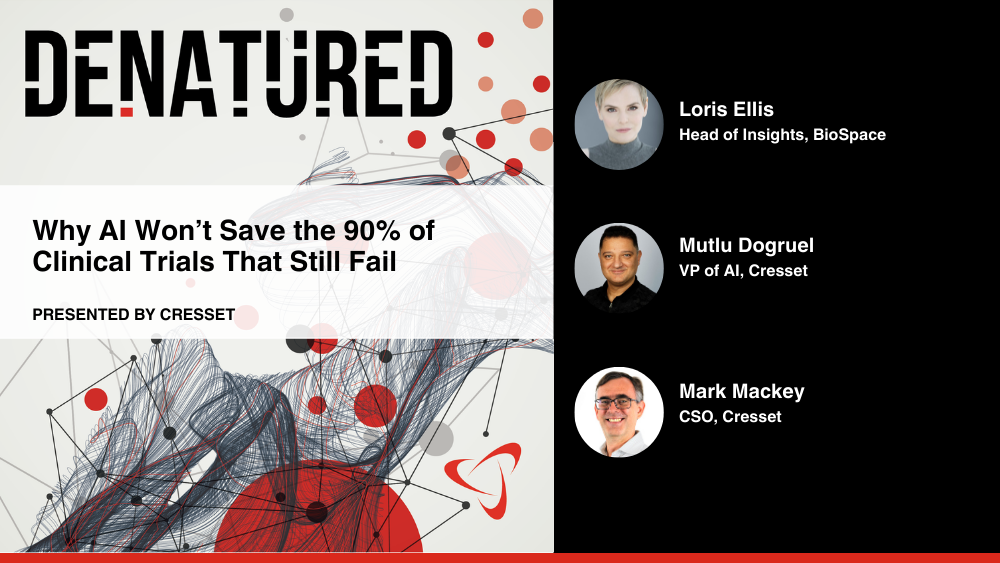In this episode presented by Cresset, BioSpace’s head of insights Lori Ellis discusses clinical trial fail rates and AI’s potential to reduce preclinical costs with Mutlu Dogruel, VP of AI and Mark Mackey, CSO of Cresset.
> Listen on Spotify
> Listen on Apple Podcasts
> Listen on Amazon Music
> Listen on iHeart
While AI represents a significant advancement in efficiency for early-stage drug discovery, it won’t dramatically change the 90% clinical trial failure rate. Most failures stem from fundamental gaps in biological understanding rather then the processes where AI is able to have the most impact.
The discussion highlights AI’s strengths and ability to reduce preclinical costs. However, they caution that AI faces significant limitations in predicting complex biological properties like toxicity due to insufficient data, and regulatory acceptance of AI-only safety assessments remains unlikely, meaning traditional clinical trials will continue to be necessary.
This episode is presented in partnership with Cresset.
Host
Lori Ellis, Head of Insights, BioSpace
Guests
Mutlu Dogruel, VP of AI, Cresset
Mark Mackey, CSO, Cresset
Disclaimer: The views expressed in this discussion by guests are their own and do not represent those of their organizations.







